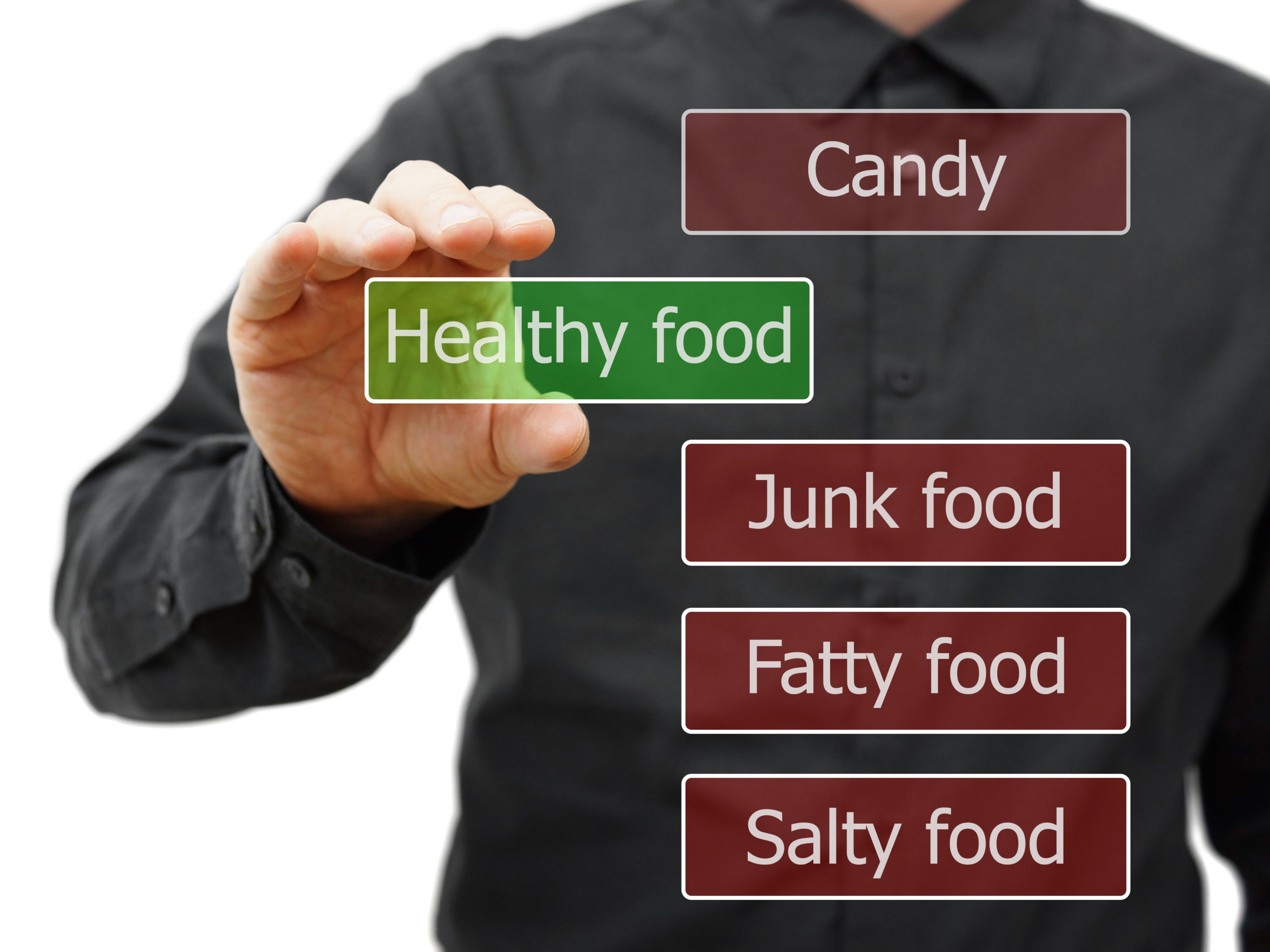
According to the Centers for Disease Control and Prevention, more than 30 million people have been diagnosed with diabetes in the United States. If it was contagious, it would be considered an epidemic. The good news is prediabetes and type 2 diabetes can be largely prevented by making a few lifestyle changes, such as:
- Keeping weight under control
- Exercising more
- Eating a healthy diet
Relationship between diet and diabetes
When you eat, your body converts most of the food you digest into glucose (a type of sugar), your body’s preferred carb-based energy source. A hormone called insulin (produced in the pancreas) allows this glucose to enter all the cells of your body. When someone has type 2 diabetes, the pancreas doesn’t make enough insulin or the body’s cells can’t use insulin properly. This is known as insulin resistance, which means there is too much sugar in the blood.
Evidence suggests high-sugar diets can lead to obesity, chronic inflammation and high triglyceride levels. Obesity is the strongest risk factor for diabetes.
10 Foods to avoid
Certain types of food can lead to obesity if consumed regularly over an extended period of time. Here are 10 foods to avoid when you’re trying to lose weight and lower your risk of diabetes:
- White bread
White bread is highly refined, contains high amounts of added sugar and can spike your blood sugar levels. Fortunately, there are plenty of delicious, whole-grain options available.
- French fries and potato chips
French fries and potato chips are unhealthy and fattening. Not only are they high in calories and trans fats, but they’ve also been linked to weight gain.
- Candy bars
Skip these high-calorie, low-nutrient snacks that are jam-packed with sugar, oils and refined flour. Satisfy your craving with a piece of fruit or a handful of nuts instead.
- Sugary drinks
Sugar-sweetened beverages, like soda, are strongly associated with weight gain and can have disastrous effects when consumed in excess. Eliminating these from your diet is highly recommended.
- Most fruit juices
Most fruit juices are highly processed, loaded with sugar and bear no resemblance to whole fruit. The next time you’re looking for a snack, fill up on a piece of whole fruit instead.
- Cakes, cookies and pastries
Cakes, cookies and pastries are filled with unhealthy ingredients like added sugar, refined (white) flour and trans fats, which can all lead to unwanted weight gain. The next time you need to satisfy your sweet tooth, try a small portion of dark chocolate.
- Alcohol
Alcohol, particularly beer, provides more calories than carbs and protein and has also been linked to weight gain. If you’re trying to lose weight or manage symptoms of diabetes, consider skipping alcoholic beverages altogether.
- Ice cream
Store-bought ice cream is high in sugar, so try making homemade ice cream using less sugar and healthier ingredients (like full-fat yogurt and fruit) and be mindful of portions.
- Pizza
Commercial pizzas are often made with highly processed and refined ingredients. A homemade pizza with healthier ingredients is a much better option.
- High-calorie coffee drinks
Plain, black coffee can be very healthy and help you burn fat. Skip the high-calorie coffee drinks that contain artificial ingredients, as they can contribute to unwanted weight gain.
4 Types of foods to eat
Keeping your weight in check, being active every day and eating a healthy diet can help prevent most cases of type 2 diabetes. Here are four dietary changes that can significantly lower your risk:
- Eat whole grains
Choose whole grains and whole-grain products over refined grains and other highly processed carbohydrates.
- Drink more water
Skip the sugary drinks and reach for water, coffee or tea instead.
- Choose healthy fats
Avoid trans fats often found in fast foods, packaged goods and fill your plate with avocados, peanut butter, nuts, seeds and fish instead.
- Limit red and processed meats
Limit red meat (beef, lamb, pork) consumption to 2-3 times per week and swap processed red meats (bacon, hot dogs, deli meats) for poultry, fish, low-fat dairy and nuts.
“You are what you eat,” is a phrase you’ve likely heard a lot, and for good reason. Food is fuel for your body, so the healthier you eat, the healthier you’ll be. Choosing healthy foods will not only lower your risk of chronic health conditions like diabetes, but you’ll also feel better and have more energy to do the things you love. Call Pomona Valley Health Centers at 909-378-9173 to learn more or schedule an appointment.





